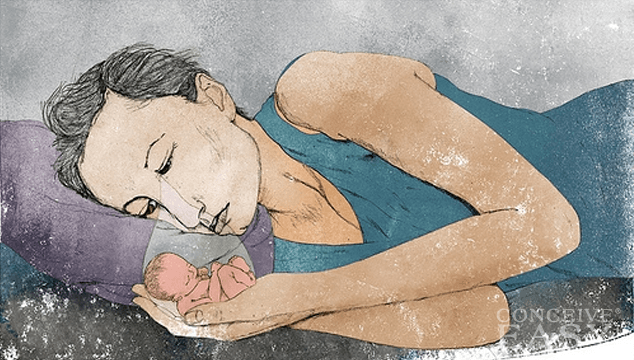A miscarriage is a tragic, devastating and heartbreaking thing for any woman to go through. Studies show that anywhere from 10-25% of all recognized pregnancies will end in miscarriage. Miscarriage is described as any pregnancy that ends on its own within the first twenty weeks of gestation. While no one wants to dwell on miscarriage or think about it, it is important to know the signs and symptoms of miscarriage in the horrible event that you or someone you love is faced with such an unfortunate event. Claim Your 20 Free Pregnancy Tests – Click Here
There are many different factors that contribute to a woman’s miscarriage. These factors are many and varied, and range from hormonal problems and bad lifestyle choices, to maternal age and trauma to the mother. The factors that contribute to a miscarriage are rarely due to any fault of the mother, except for in the case of lifestyle choices such as drug use during pregnancy. So be sure not to blame yourself. Take the time you need to grieve after miscarriage.

The first sign of miscarriage is usually vaginal spotting or bleeding. Spotting alone is not a sign of miscarriage, since as many as 1 in 5 women will experience some light spotting in the beginning of their pregnancy. Bleeding associated with miscarriage will usually be bright red or brown, and can occur with or without cramping and will last longer than just your standard variety pregnancy spotting. So don’t freak out if you notice a little pink or brown on your toilet tissue, as nearly 20-30% of all pregnancies may experience some sort of spotting and go on to deliver a healthy baby.

Another sign of miscarriage is stomach and/or pelvic pain. Pain can be in the form of cramps, but they will be stronger than regular period cramps. Miscarriage cramping is often very painful, isolated to one side of the stomach, or accompanied by bleeding. The cramps might also present themselves as lower back pain or as pelvic pressure. The chances of a pregnancy continuing when combined with both bleeding and pelvic pain are very low.

There can be other signs of miscarriage as well. Some of these can a sudden loss of weight. During pregnancy of course, your body adds on the pounds as the baby grows, as your placenta develops and grows, and in increasing blood volume and water coursing through your pregnant body. If you had been gaining a consistent amount of weight while pregnant and then all of a sudden, find yourself losing weight, this could be an early indicator of miscarriage.

Some women who are experiencing a miscarriage experience true contractions, that occur every 5 to 20 minutes and can be excruciatingly painful. This would seem unusual to the pregnant woman, as miscarriages do occur before week 20 in pregnancy. Of course, contractions toward the end of your pregnancy would be an entirely different matter, from the onset of true labor, Braxton Hicks contractions, or even preterm labor. Some women also notice a sudden decrease in the signs of pregnancy as their indicator of miscarriage.

Other signs may include a white/pink mucus discharge from your vagina, again this would be alongside spotting. Also, if you see greyish tissue or clots passing from the vagina, this would be a definite indicator of miscarriage as a healthy pregnancy would not be passing such matter.

Other times, a women will not know that she has suffered a miscarriage until she visits a doctor for a routine appointment and the doctor is unable to find a heart beat. The doctor might also notice that the uterus is not growing as it should be. Sometimes a woman does not find out about a miscarriage until the doctor tells her, since the embryo or fetus can stop growing a few weeks before symptoms like bleeding or cramping begin. This perhaps is the most devastating of all, to excitedly go to the doctor for a normal prenatal check and come away with this sad news.
Miscarriage is never an easy thing for any woman to go through, but it is important to be educated and aware of the signs of miscarriage in case you or someone you know may experience it. If you are experiencing any of the signs listed above, call your health care provider immediately.










Comments